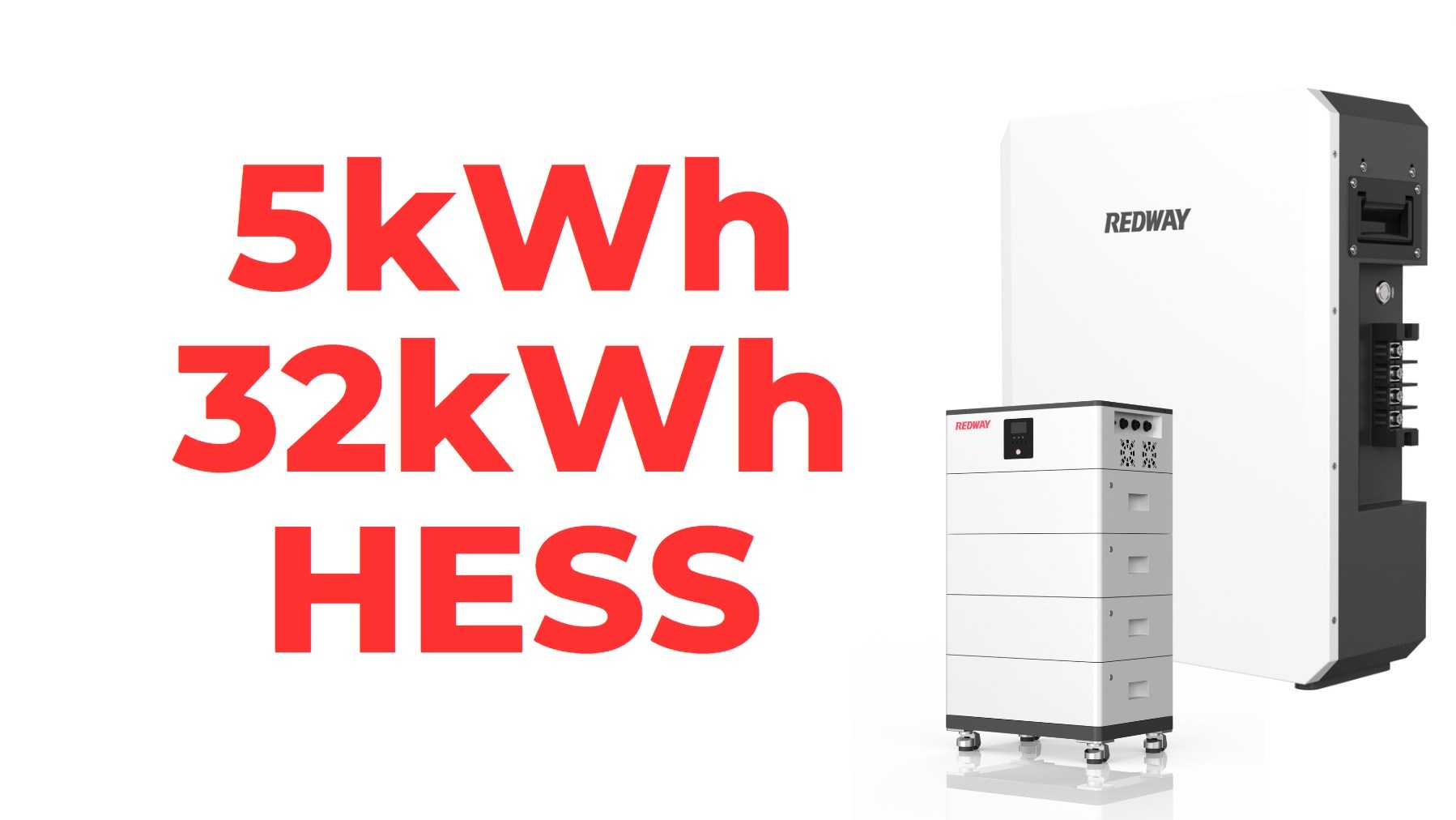Are you tired of high electricity bills and the constant worry of power outages? Well, it’s time to take control and say goodbye to these energy woes. Introducing home battery storage systems – the innovative solution that is revolutionizing the way we power our homes. With their ability to store excess energy generated from renewable sources or during off-peak hours, these systems offer a reliable and sustainable alternative for homeowners. But are they right for you? Let’s dive in and explore everything you need to know about home battery storage systems!
How Do Home Battery Storage Systems Work?
Home battery storage systems are an innovative solution that allows homeowners to store excess energy generated by their solar panels or other renewable energy sources. These systems work by capturing and storing the surplus electricity during times of low demand, such as sunny days when solar panels produce more power than the household needs.
Once the energy is stored in the batteries, it can be used later when there is a higher demand for electricity. This means that homeowners can rely less on the grid during peak hours or at night when renewable energy generation may not be sufficient. It also provides a backup power source in case of outages.
The key component of a home battery storage system is the lithium-ion batteries, which have become increasingly popular due to their high energy density and long lifespan. These batteries are connected to an inverter, which converts direct current (DC) from the battery into alternating current (AC) that can be used to power appliances and devices in your home.
To optimize efficiency, most home battery storage systems also incorporate smart technology that monitors your household’s energy consumption patterns and adjusts charging and discharging accordingly. This ensures that you make the most of your stored electricity without wasting any valuable resources.
Home battery storage systems provide flexibility and control over your electricity usage while reducing dependence on traditional grid infrastructure. They’re an environmentally friendly option for those looking to reduce their carbon footprint while enjoying reliable backup power supply whenever needed.
The Benefits of Using a Home Battery Storage System
Are you tired of constantly worrying about power outages and the dependability of your energy supply? A home battery storage system might just be the solution for you. With advancements in technology, these systems have become increasingly popular among homeowners. But what exactly are the benefits of using a home battery storage system?
One of the major advantages is that it provides backup power during outages. Imagine not having to rely on candles or flashlights when the lights go out – with a home battery storage system, you can continue to power your essential appliances and devices without any interruption.
Not only does this provide peace of mind, but it also allows you to save money on alternative sources such as generators or fuel-powered solutions. By storing excess electricity generated by solar panels or during periods of low demand from the grid, a home battery storage system enables you to use that stored energy when needed instead of relying solely on expensive utility company rates.
Another benefit worth mentioning is increased self-sufficiency. With a home battery storage system, you become less reliant on traditional energy providers and have more control over your own energy usage. This means reducing your carbon footprint by maximizing renewable energy utilization and minimizing reliance on fossil fuels.
Furthermore, some utility companies offer programs where they buy back excess electricity stored in your batteries through net metering arrangements. This can potentially result in additional savings on your monthly electricity bills.
Additionally, installing a home battery storage system adds value to your property. As sustainability becomes an increasing priority for homeowners and buyers alike, having an efficient and reliable source of backup power can make all the difference when it comes time to sell.
With advancements in technology driving down prices and improving performance capabilities, now may be an ideal time to invest in a home battery storage system. Not only will it enhance your overall quality of life but also contribute positively towards building a greener future.
In conclusion (without using those exact words), there are numerous benefits to using a home battery storage system. From providing backup power during outages
Factors to Consider Before Purchasing a Home Battery Storage System
Factors to Consider Before Purchasing a Home Battery Storage System
1. Energy Needs: One of the first factors to consider is your energy needs. Assess how much electricity you consume on a daily basis, as well as any specific peak energy demands you may have. This will help determine the size and capacity of the battery storage system required.
2. Cost: The cost of home battery storage systems can vary greatly depending on factors such as brand, capacity, and installation requirements. It’s important to set a budget and research different options to find one that meets both your energy needs and financial constraints.
3. Compatibility: Before purchasing a home battery storage system, ensure that it is compatible with your existing solar panels or renewable energy source. Different systems may have specific compatibility requirements, so it’s crucial to check before making a purchase.
4. Warranty: Look for warranties offered by manufacturers when considering a home battery storage system. A longer warranty period provides peace of mind and indicates confidence in the product’s performance and durability.
5. Safety Features: Consider the safety features provided by different brands and models of home battery storage systems. Look for features like overcharge protection, temperature monitoring, short circuit prevention, and fire-resistant materials.
6.Environmental Impact: If reducing your carbon footprint is important to you, consider the environmental impact of different home battery storage systems available in the market today. Some batteries are made using more sustainable materials or have higher efficiency ratings than others.
7.Installation Process: Understand the installation process involved with each potential system under consideration – some require professional installation while others are designed for DIY enthusiasts.

Different Types of Home Battery Storage Systems
There are several types of home battery storage systems available in the market today, each with its own unique features and benefits. Understanding the different types can help you make an informed decision when choosing the right system for your needs.
1. Lithium-ion Batteries: These are the most common type of batteries used in home battery storage systems due to their high energy density and long lifespan. They are lightweight, compact, and have a fast charging capability.
2. Lead-Acid Batteries: Although less common nowadays, lead-acid batteries were once popular for home use. They are affordable but have a shorter lifespan compared to lithium-ion batteries.
3. Flow Batteries: Flow batteries store energy in liquid electrolyte tanks, making them suitable for larger-scale applications such as commercial buildings or microgrids.
4. Sodium-Ion Batteries: Sodium-ion batteries offer a lower-cost alternative to lithium-ion batteries while still providing decent performance and safety features.
5. Nickel-Cadmium (NiCd) Batteries: NiCd batteries have been around for many years and were commonly used before lithium-ion technology became widespread. However, they have limited capacity and contain toxic materials.
6. Hybrid Systems: Some home battery storage systems combine multiple battery technologies to optimize performance and provide backup power during outages effectively.
It’s essential to consider factors like cost, capacity requirements, installation space availability, compatibility with solar panels if applicable), warranty terms, and maintenance requirements when selecting a home battery storage system that suits your specific needs.
Top Brands and Products in the Market
When it comes to home battery storage systems, there are several top brands and products that have gained popularity in the market. These brands have established themselves as leaders in providing reliable and efficient solutions for storing energy.
One of the top brands is Tesla, with its Powerwall being one of the most well-known home battery storage options available. The Powerwall offers a sleek design, high capacity, and advanced features such as real-time monitoring and integration with solar panels.
Another reputable brand is LG Chem, which offers a range of residential batteries known for their long lifespan and high performance. Their RESU series has become a popular choice among homeowners looking for an effective way to store excess energy generated from renewable sources.
Enphase Energy is also making waves in the market with its Encharge AC Battery System. This all-in-one solution combines a lithium iron phosphate battery pack with an integrated microinverter system, simplifying installation and maximizing efficiency.
Other notable brands include Sonnen, SimpliPhi Power, and BYD. Each brand offers unique features and benefits that cater to different needs and preferences.
When considering which brand or product to choose for your home battery storage system, it’s essential to evaluate factors such as capacity requirements, warranty terms, pricing options, compatibility with existing solar installations if applicable,
and customer reviews.
Remember that selecting the right home battery storage system requires careful consideration based on your specific energy needs
and financial situation
Conclusion: Is a Home Battery Storage System Right for You?
After exploring the ins and outs of home battery storage systems, you may be wondering if it is the right choice for you. The answer to that question ultimately depends on your individual circumstances and priorities.
If you live in an area with regular power outages or high electricity costs, a home battery storage system could provide peace of mind and potential savings. It allows you to store excess energy generated by renewable sources like solar panels and use it during times when electricity is expensive or unavailable.
Additionally, if reducing your carbon footprint is important to you, a home battery storage system can help make your household more sustainable. By storing clean energy from renewable sources, you can reduce reliance on fossil fuels and contribute towards a greener future.
However, before making any purchasing decisions, there are several factors to consider. The size of your household’s energy consumption, the cost of installation and maintenance, as well as any local regulations or incentives should all be taken into account.
Furthermore, not all homes may benefit equally from a home battery storage system. If your electricity usage is consistently low or if grid reliability is not an issue in your area, investing in such a system might not make financial sense.
Consulting with experts in the field can help determine whether a home battery storage system aligns with your goals and needs. They can assess your specific situation and guide you towards the best solution for maximizing efficiency while minimizing costs.
In conclusion (without explicitly stating), evaluating whether a home battery storage system is right for you requires careful consideration of various factors related to cost-effectiveness, environmental impact, local conditions and regulations.
Related Posts
- What’s the Cost of Solar Battery Storage for Your Home?
- What type of battery works best in cold weather?
- How long will it take to charge 12V 24Ah LiFePO4 Rechargeable Battery?
- ESS Energy Storage: Empowering the Future of Energy Consumption
- Comparing Home Battery Storage Prices: Making Informed Choices
- Best Home Battery Storage Options: Finding Your Perfect Fit



